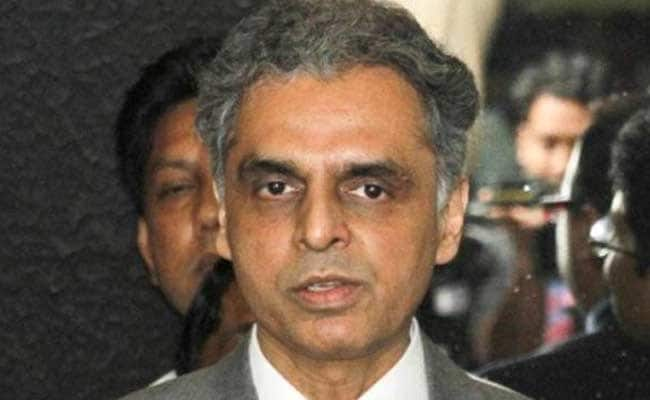
Syed Akbaruddin voiced India's firm conviction that no belief, justification, political cause or argument can be used to justify the acts of terrorism. (File Photo)
United Nations:
India has demanded in the United Nations that perpetrators of terror attacks and the nations that sponsor and provide safe havens to terrorists must be made accountable as it called for early adoption of the Comprehensive Convention on International Terrorism (CCIT).
"Of all the threats that are global in nature and should concern us all, terrorism is amongst the most serious. It is one that impacts lives of innocent people across the world," India's Permanent Representative to the UN Ambassador Syed Akbaruddin said at the fifth review of the United Nations Global Counter-Terrorism Strategy on Friday.
Mr Akbaruddin voiced India's firm conviction that no belief, justification, political cause or argument can be used to justify the acts of terrorism.
"The perpetrators of terrorist attacks as well as the States that support and sponsor or provide safe havens to terrorists or terrorist groups must be made accountable," he said, adding that no single country can address the challenge of terrorism alone.
"No country remains immune to this threat. Victims of such heinous attacks also do not belong only to a single country or ethnicity or faith," he said.
The 193-member General Assembly continued its 5th review of Global Counter-Terrorism Strategy and adopted a resolution on ways in which to redouble efforts to work swiftly, collectively and effectively in rooting out the scourge.
Mr Akbaruddin said while India is in broad agreement with most of the resolutions adopted, he expressed disappointed over the "unfinished agenda" of the Comprehensive Convention of Terrorism.
"In our opinion this signals that the exponential rise in terrorist activities around the world has left us untouched," he said, urging all delegations to make "sincere efforts" to reach an agreement on concluding the Convention at the earliest and by the 71st session of the UNGA.
"This would show that the international community is determined and pledges to take concrete actions on counter-terrorism by filling in the gaps that are there in the existing regime," he said.
India has been pressing for early adoption of the Comprehensive Convention on International Terrorism (CCIT), a long-pending legal framework which would make it binding for all countries to deny funds and safe haven to terror groups.
With the objective of providing a comprehensive legal framework to combat terrorism, India took the initiative to pilot a draft CCIT in 1996 but the convention has not yet been adopted as nations have "entangled" themselves on the issue of definition of terrorism.
"Of all the threats that are global in nature and should concern us all, terrorism is amongst the most serious. It is one that impacts lives of innocent people across the world," India's Permanent Representative to the UN Ambassador Syed Akbaruddin said at the fifth review of the United Nations Global Counter-Terrorism Strategy on Friday.
Mr Akbaruddin voiced India's firm conviction that no belief, justification, political cause or argument can be used to justify the acts of terrorism.
"The perpetrators of terrorist attacks as well as the States that support and sponsor or provide safe havens to terrorists or terrorist groups must be made accountable," he said, adding that no single country can address the challenge of terrorism alone.
"No country remains immune to this threat. Victims of such heinous attacks also do not belong only to a single country or ethnicity or faith," he said.
The 193-member General Assembly continued its 5th review of Global Counter-Terrorism Strategy and adopted a resolution on ways in which to redouble efforts to work swiftly, collectively and effectively in rooting out the scourge.
Mr Akbaruddin said while India is in broad agreement with most of the resolutions adopted, he expressed disappointed over the "unfinished agenda" of the Comprehensive Convention of Terrorism.
"In our opinion this signals that the exponential rise in terrorist activities around the world has left us untouched," he said, urging all delegations to make "sincere efforts" to reach an agreement on concluding the Convention at the earliest and by the 71st session of the UNGA.
"This would show that the international community is determined and pledges to take concrete actions on counter-terrorism by filling in the gaps that are there in the existing regime," he said.
India has been pressing for early adoption of the Comprehensive Convention on International Terrorism (CCIT), a long-pending legal framework which would make it binding for all countries to deny funds and safe haven to terror groups.
With the objective of providing a comprehensive legal framework to combat terrorism, India took the initiative to pilot a draft CCIT in 1996 but the convention has not yet been adopted as nations have "entangled" themselves on the issue of definition of terrorism.
Track Latest News Live on NDTV.com and get news updates from India and around the world

